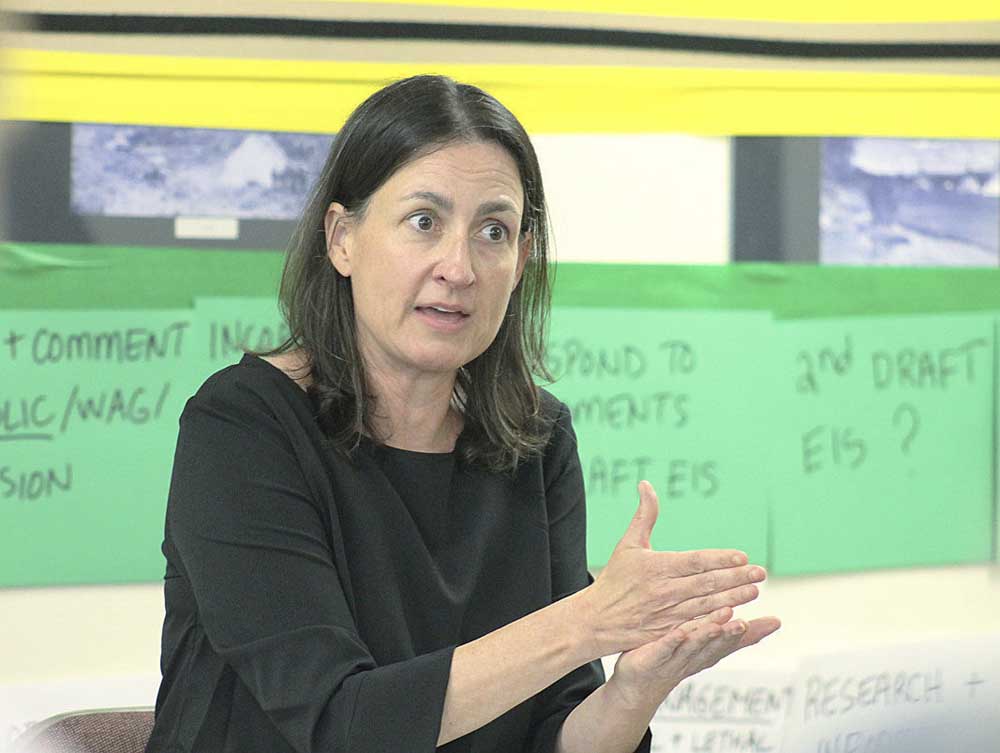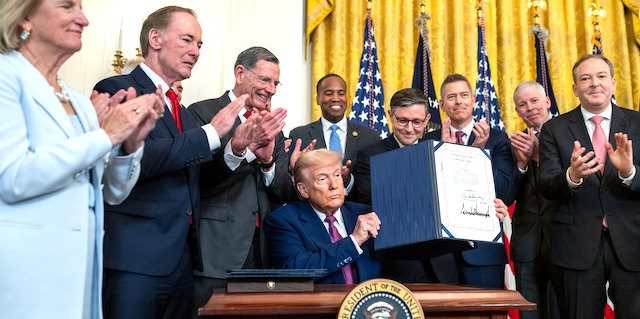Washington’s wolf peacemaker ends her tenure
Published 3:19 am Wednesday, July 11, 2018

- Meeting leader Francine Madden talks to the Washington Department of Fish and Wildlife's Wolf Advisory Group on July 10 in Ellensburg. Madden concludes her involvement with the group this week, ending her high-profile role in seeking consensus on wolf policy.
ELLENSBURG, Wash. — High-profile mediator Francine Madden this week wrapped up her three-year mission to corral the conflicts humans have over wolves in Washington.
Madden succeeded in getting people with different views to collaborate, but money to fund her contract has run out, Department of Fish and Wildlife wolf manager Donny Martorello said. Madden teared up Tuesday after leading a meeting of the department’s Wolf Advisory Group.
“I’m going to miss the people in this state a lot,” she said. “They are passionate, hard-working and deeply committed to their communities.”
Madden’s departure comes as the department shifts the focus of the advisory group from current policies to proposing a plan to manage a stable statewide population of wolves. The department’s present handling of wolves continues to be criticized by cattlemen and conservationists.
The department signed the Washington, D.C.-based Madden to a nearly $1.2 million contract in 2015 and to a $425,000 extension last year. Her in-person services cost $8,000 a day, plus travel expenses. She previously had an $82,000 contract to write a report for the department on social conflicts over wolves.
Madden’s work to reconcile opposing views was praised by people on different sides, though the Cattle Producers of Washington said the department should refocus on managing wolves, not people, and left the advisory group in 2015.
The group, including its members from conservation organizations, agreed in 2017 on when wolves would be killed to stop attacks on livestock. Environmentalists not on the panel, however, argue the policy violates the law because it didn’t undergo a formal public review.
Madden said conflicts will ebb and flow and cited her neutral status in declining to assess the state of discord over wolves. “It’s not for me to judge,” she said.
Martorello said the department will look for money to hire another person to lead wolf meetings, though funding is uncertain. In any event, the agency is better able now to preside over contentious talks, he said.
“At some point, we wanted to learn that skill set and take it upon ourselves,” Martorello said. “As (Madden) parts the system, we will carry on the strategies she has taught us.”
If the department allocates money for a facilitator, the position will be put out to bid, Martorello said. Madden didn’t rule out seeking a new contract. “I can’t predict the future,” she said.
The wolf advisory group spent Tuesday roughly outlining steps toward submitting a plan to manage wolves after they’ve been taken off the state’s endangered species list. Recovery appears to be at least several years away.
“We are asking the (wolf advisory group) to focus attention on a post-delisting plan because it is such a high priority for us,” Martorello said.
Some wolf advisory group members said they wanted to also talk about current policies.
“We can’t forget the people who are being affected as we discuss what we’re going to be doing in five years,” said Garfield County rancher Samee Charriere.
Kettle Range Conservation Group director Tim Coleman said the group should talk about topics such as how the department assigns depredations to packs and applies the law that allows ranchers to shoot wolves caught attacking livestock. “I want to talk about what’s going on now,” Coleman said. “We need to understand each other.”






